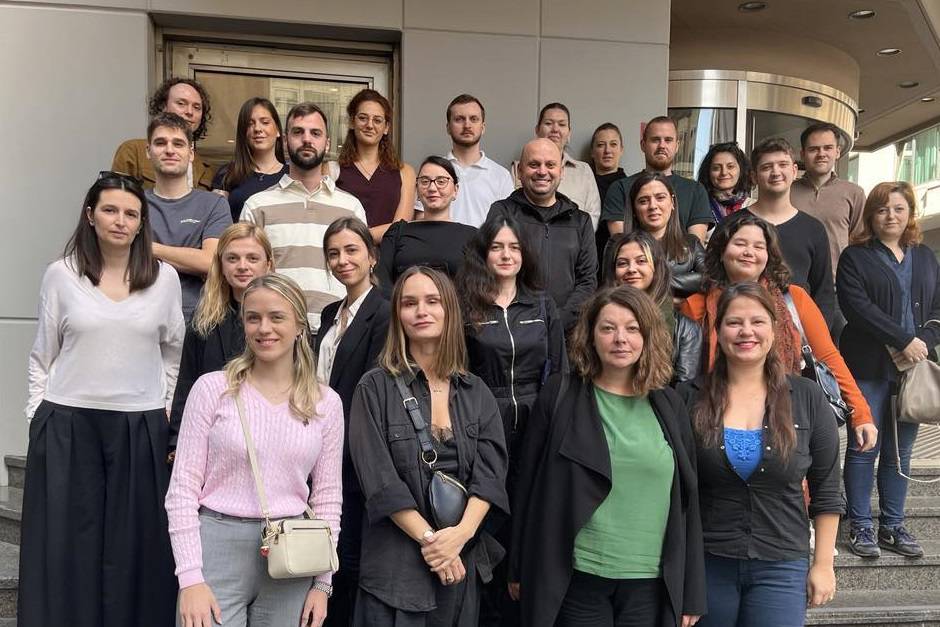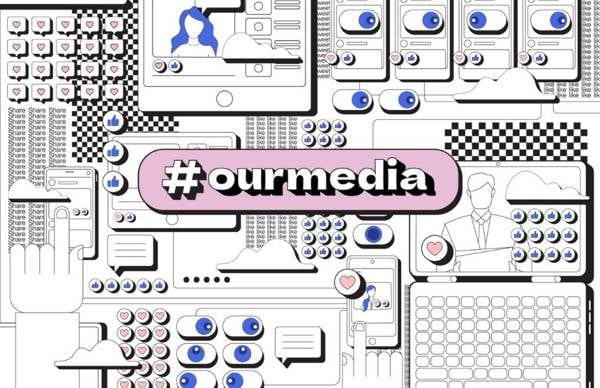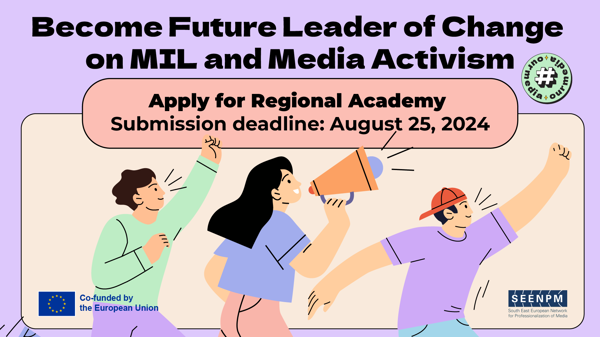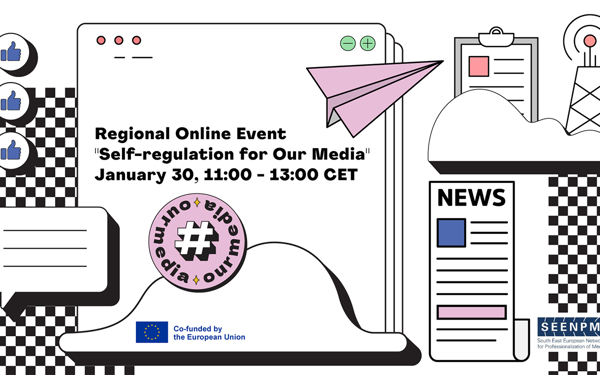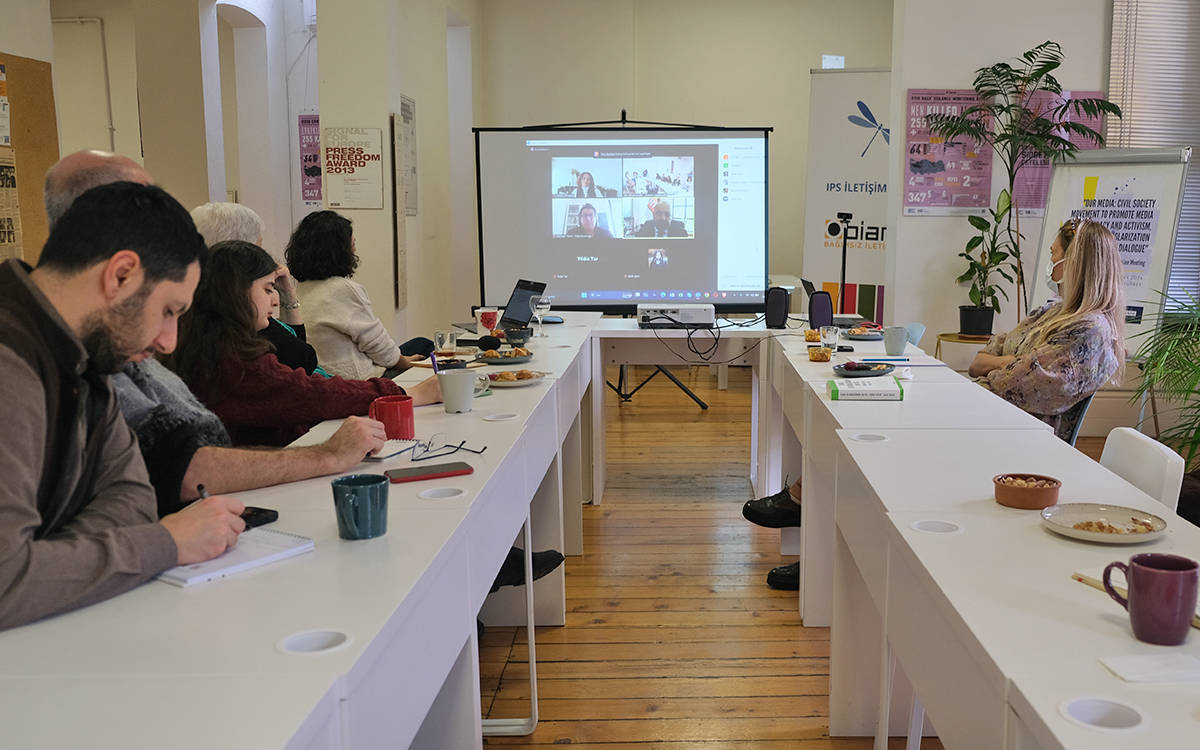Young activists, researchers, and journalists from the Western Balkans and Turkey gathered in İstanbul from October 29-31 for the first “Regional Academy for Future Leaders of Change on Media Literacy and Media Activism." The event focused on building connections and empowering participants to advance MIL and media activism in their communities.
Over two and a half days, 29 young people and media CSO representatives from Bosnia and Herzegovina, Serbia, Montenegro, Albania, Kosovo, North Macedonia, and Turkey came together to exchange experiences and insights on freedom of expression and media landscapes in their countries. They came to Turkey to discuss shared challenges faced by media professionals in the region and to explore how young people can contribute to strengthening media literacy and supporting free, quality journalism.
Hristina Cvetinčanin Knežević, a sociologist, researcher, and gender and media expert from Serbia was among them. Hristina who founded the Instagram page “Feminizam iz teretane” (Feminism from the gym) to promote feminist empowerment, says she would like to use connections and knowledge gained at the Academy to establish her own media outlet.
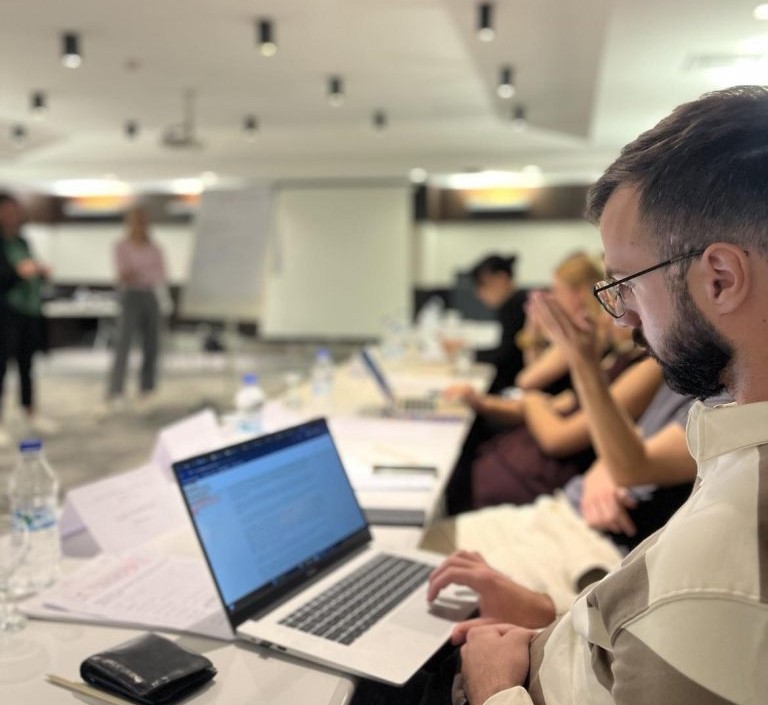
“I realized that one of the major issues in Serbia is the lack of a safe space dedicated to informing people about the state of women’s rights in a way that is accessible to everyone, using everyday language and addressing everyday issues”, says Hristina who is also a member of the group Journalists Against Violence Against Women and collaborates with Elle, BIRN, Media Diversity Institute, Mašina, and others as a freelance journalist.
In addition to her desire to create a platform for quality reporting on feminist topics, she hopes to establish an outlet that will offer young female journalists the support she lacked at the beginning of her career.
“It would be a space where one can learn the journalistic craft without being exploited for it, meaning being paid for the work, all while being guided by feminist values.”
Bojan Lazarevski, a youth activist, writer, and researcher from North Macedonia, believes the connections he made in Istanbul will be valuable for his future work.
“Because this event includes participants from all Western Balkan countries plus Turkey, a great benefit for the future is the networking. At least I will have contacts from every country that I can reach out to and potentially collaborate with in the future, or if I have specific questions about the situation in any of these countries.”
Vital role of youth in defending freedom of expression
Regional Academy in Istanbul was organized within the regional Our Media project focused on strengthening the capacities of CSOs, media professionals, young activists and citizens to improve their understanding of trends and challenges regarding media freedom and media integrity in the Western Balkans and Turkey.
Maida Muminović, executive director of Mediacentar Sarajevo, lead organization on the project, explains that with the Academy, partner organizations want to create allies in their fight for free and independent media among people from all walks of life and beyond the circles CSOs usually manage to alert and engage over developments related to freedom of expression.
“What our participants share is interest in the future of free media, the future of freedom of expression and are open to becoming well-informed advocates for our fundamental right to think and speak freely. Participants of the Academy are young professionals, coming from different educational and professional backgrounds. With us, we have journalists, but also politicians, education workers, activists, influencers.”
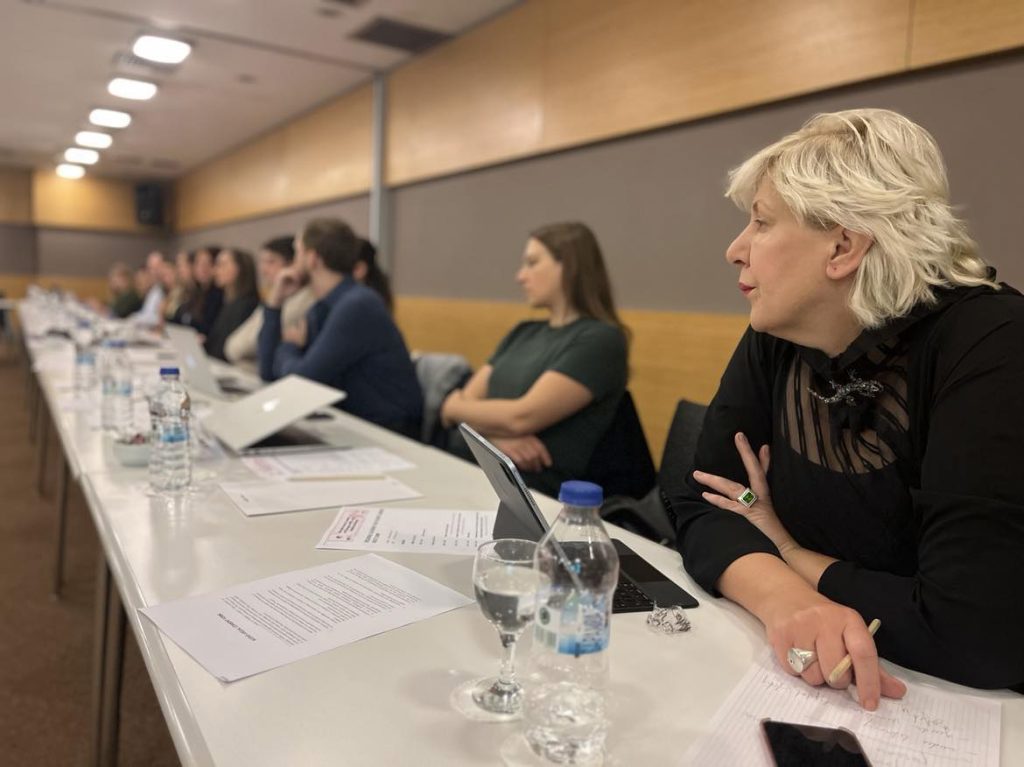
Civil society, particularly the youth, plays a vital role in defending freedom of expression in democratically aspiring societies, believes Dunja Mijatović, human rights expert. Mijatović, who was the key speaker at the Academy, explains the various ways in which young voices can advocate for a better media environment:
“They can highlight instances of censorship, restrictions, and other forms of suppression of free speech. By leveraging digital platforms and organizing nonviolent protests, they can raise both local and global awareness of pertinent issues and cultivate solidarity for the free expression movement. Young individuals can create safe spaces for open discussions both online and offline.”
Skepticism toward traditional media must be considered
Bojan, who has extensive experience with youth work and CSOs through volunteering and internship, believes that media CSOs in the region need to be aware of the new trends among new generations.
“There are new challenges and perspectives emerging among the younger generation that we need to follow and consider carefully. If we only focus on traditional media, our approaches may become outdated”, says Bojan.
Additionally, Mijatović believes, traditional media typically lacks the interactive elements that enable viewers to comment, share, and engage directly with content, which are key features on platforms like TikTok, YouTube, and Instagram.
“Furthermore, younger generations often view mainstream media with skepticism, citing concerns about bias and the influence of corporate or political interests, and they feel that traditional media often fails to reflect their diverse perspectives, identities, and experiences accurately.”
Future Leaders of Change: Next steps
Following the event in Istanbul, participants will continue to learn about the concepts of media ethics, challenges to media regulation, gender and media, influence of tech developments on freedom of expression and future of media.
“In spring, we will be visiting newsrooms and organisations who have developed advanced practices in the field of mobilizing communities for freedom of expression, and this is something we are very much looking forward to. The whole process is designed to encourage participants to launch their own initiatives on freedom of expression which we will seek to support through the project Our Media”, concludes Muminović.
Read more about the Our Media project here.
The regional program “Our Media: A civil society action to generate media literacy and activism, counter polarisation and promote dialogue” is implemented with the financial support of the European Union by partner organizations SEENPM, Albanian Media Institute, Mediacentar Sarajevo, Press Council of Kosovo, Montenegrin Media Institute, Macedonian Institute for Media, Novi Sad School of Journalism, Peace Institute and Bianet.
This article was produced with the financial support of the European Union. Its contents are the sole responsibility of SEENPM and do not necessarily reflect the views of the European Union.





